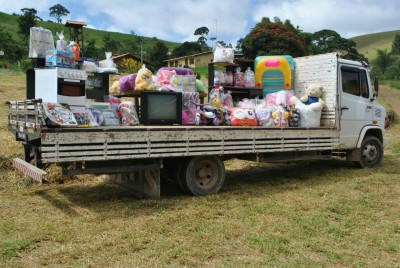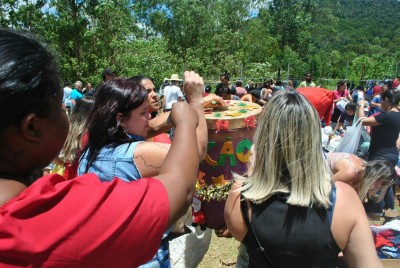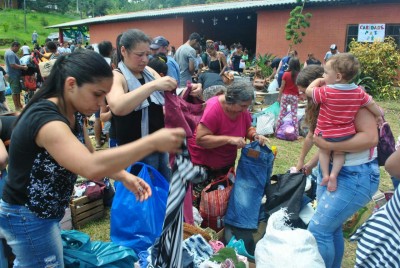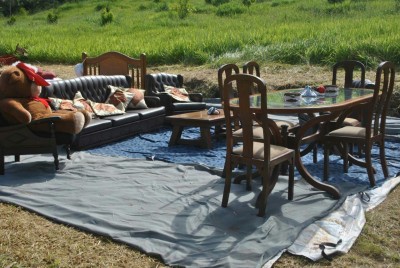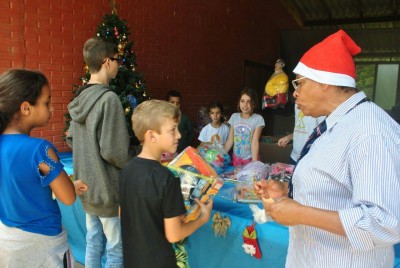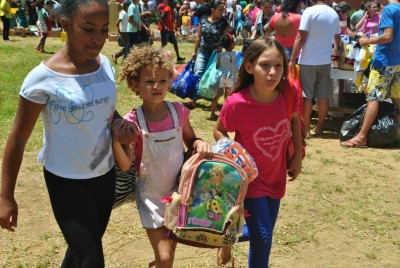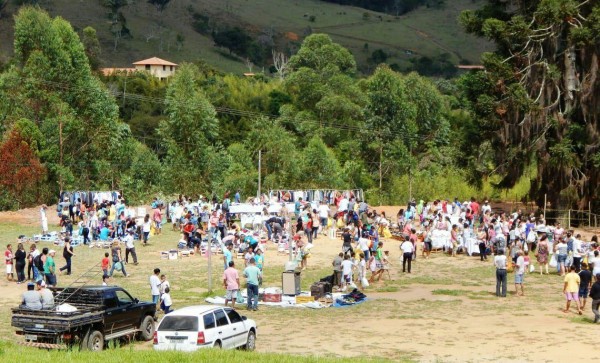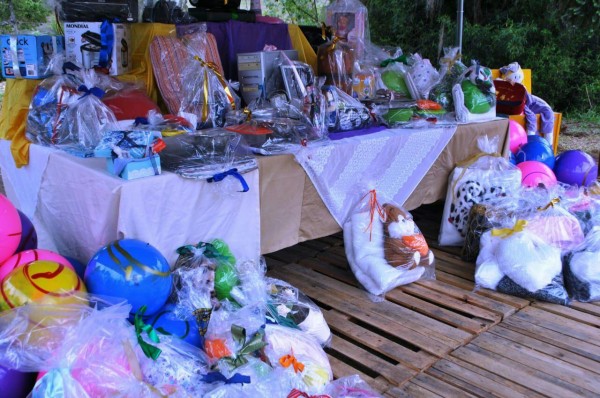Essential at this moment in which the planet is going through a pandemic is what charity and solidarity have in common which is helping others, and in this sense, they work side by side.
An expression of kindness and compassion, charity manifests the love that comes from God. By loving and being loved by God, human beings can manifest charity, welcoming one who suffers and has need of help. In charity, the result of all actions is love, as the spiritual teacher, José Trigueirinho Netto, taught: “charity is something that comes from levels where higher love exists.”
Held at the Light-Community of the New Earth, one of the affiliates of the Fraternity – International Humanitarian Federation (FIHF), the Bazaar of Love is a living example of charity and solidarity.
The Light-Community of the New Earth, located in Teresópolis – RJ, also known as the Crer-Sendo Service Nucleus, continually receives a great inflow of donations; among the new and used objects can be found: household items, furniture, food, clothing, shoes, jewelry, toys, among other things.
According to what the collaborator Maria da Penha Sampaio says, there is a large number of people that support the bazaar: “it is a very diversified group, with people who make layettes, baby clothes, others who restore jewelry, restore furniture, and still many others who help to organize and set up the bazaar.
Everything that is received goes through a selection process, and the group that contributes to the bazaar provides several kinds of repairs. “We transform the donated items into usable objects, through cleaning, painting, restoration, sewing, whatever is necessary,” explains Penha.
Working in the community since the beginning of the activities, the collaborator remembers the entire trajectory that the work went through until reaching this large Bazaar of Love, which before the pandemic, received 200 to 500 people, and she affirms that “many people benefit from the bazaar: street people and those that live in the surroundings of the Light-Community, in the neighborhoods of Sebastiana, Serra do Capim, Vila do Peão, Cruzeiro, Água Quente, Viana, Vale Alpino”.
It is important to highlight that the Bazaar of Love works on the basis of exchange or spontaneous donations, that nothing is charged for, as is emphasized: “the street people bring vegetables and fruit that they have harvested themselves and some make an offering of money in a box at the exit door of the event. Everything is spontaneous and occurs peacefully and harmoniously.”
For the collaborator, the objective of the bazaar is to “share with people the love we receive in the form of objects. Since we receive a lot, we have a lot to share. The bazaar is our way of thanking the universe for all that we receive in such a harmonious, beautiful, simple and loving way.”
In the teachings of Trigueirinho, it says that “charity is not just the distribution of things; behind it there are other more real circumstances; the heart is present.”
The love transmitted by the heart of each one who participates pulsates through the whole task. In this sense, Penha highlights: “what is important about the bazaar is not just the bazaar in and of itself, but all the work, the preparation, because everything is done with a lot of love.” And she adds: “some depressed people, upon helping at the bazaar, gain a new spirit and tell us this.”
As to solidarity, Trigueirinho left the following instruction: “Problems are solved with love and solidarity, and for this to be effective, it must exist amongst everyone, including those who have the need. There must also be solidarity among them.”
It is clear that this exists in the rural communities that benefit from the Bazaar of Love, for according to the example provided by Penha: “the promotion of the bazaar has always been word of mouth, and we have even had five hundred people come. The residents form a network, in which one informs the other, as for example, when it rains and the bazaar is postponed.”
Pandemic
Aware of the importance of continuing to provide assistance to this population of the rural communities in this time of the pandemic, Penha explains that they continue to serve the residents of the communities, trying to meet their needs. She explains that “they send us their needs through a messaging app and we go to the place and deliver the donation.”
Also according to her, all those involved in this external movement rigorously comply with all the health care protocols established by the World Health Organization.
In this way, even during the pandemic that has spread all over the planet, it is possible to keep alive the flame of charity and solidarity experienced by all this group of collaborators, living examples of the practice of love.
“It is through the energy of the heart, loving the most unfortunate and having compassion for the humblest, that charity is achieved in the consciousness.” (José Trigueirinho Netto)

